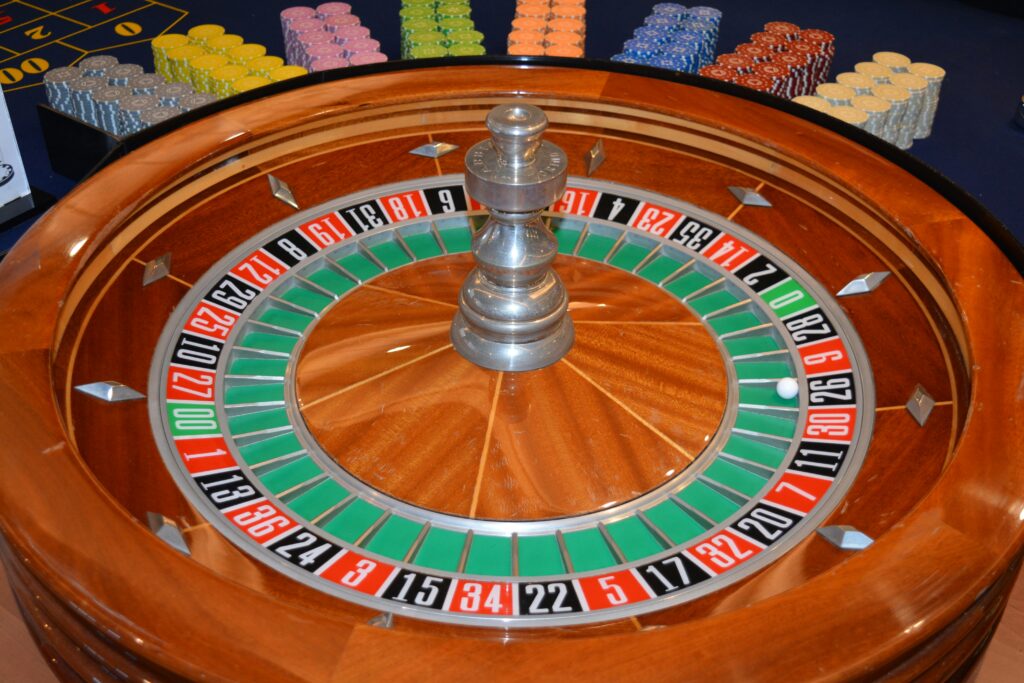Recognizing When Gambling Stops Being Fun
Gambling may start as a casual pastime, but for some, it can quietly shift into something more serious. Understanding when entertainment crosses into harmful behavior is the first step toward getting help.
Key Warning Signs of a Gambling Problem
Not all signs are obvious, but being aware of the indicators can make a big difference:
- An increase in the frequency or duration of gambling sessions
- Chasing losses and believing big wins will fix everything
- Feeling restless or irritable when not gambling
- Hiding gambling activity from family or friends
Emotional, Financial, and Social Red Flags
Problem gambling doesn’t just impact your wallet—it touches every part of life:
- Emotional Impact: Guilt, anxiety, depression, or mood swings linked to gambling
- Financial Pressure: Accumulating debt, borrowing money regularly, or missing bills
- Social Consequences: Withdrawing from loved ones, lying about time or money spent, or losing trust in relationships
How It Can Spiral Without Notice
Compulsive gambling habits often build silently over time. What starts as fun can quickly feel out of control:
- Wins cause dopamine releases, reinforcing risk-taking behavior
- Small losses feel manageable, but the urge to “win back” remains strong
- Boundaries shift subtly, making it hard to recognize how far things have gone until consequences erupt
Recognizing these signals early and honestly is essential. The sooner you identify the patterns, the sooner you can take meaningful steps toward reclaiming your balance.
First Steps: Acknowledging the Issue
Admitting there’s a problem isn’t easy. For most people, it’s the hardest step. Gambling, like many compulsive behaviors, often hides behind justifications: a string of near wins, stress relief, or the belief that things will turn around. It’s not unusual to minimize losses or convince yourself it’s under control. But acceptance takes honesty—and that’s uncomfortable.
Facing the truth doesn’t make you weak. It makes you aware. Building the courage to seek help means shifting the focus from shame to change. You don’t need a rock-bottom moment to act. A quiet realization that something feels off is more than enough to begin.
If you’re unsure where you stand, there are anonymous self-assessment tools available online. They’re not about labeling; they’re about clarity. Hotlines are also open day and night, staffed with trained listeners—not judges. These are first steps, not final answers. They let you pause, reflect, and decide what comes next without pressure or exposure.
The road starts here: quietly, honestly, one step at a time.
Where to Turn: Professional Help and Support
When gambling shifts from entertainment to a problem, the next step isn’t guesswork—it’s support. Certified therapists who specialize in gambling addiction understand the behavioral loops, brain chemistry, and triggers behind it. They’re trained to help you unpack the patterns, build coping tools, and map out recovery—without moral judgment. Start by looking for licensed counselors (often LCSWs, LPCs, or psychologists) who list gambling addiction as a focus area. Many states also maintain directories of certified gambling counselors through their health departments.
Support groups can also hit harder than expected—in a good way. Gamblers Anonymous (GA) offers faith-based, 12-step programs built on peer connection, while SMART Recovery provides a more secular, science-backed option focusing on self-management and cognitive tools. Both paths offer structure, community, and a sense of momentum. Different approaches work for different people. You won’t know what fits until you try.
Gamblers dealing with anxiety, depression, or trauma aren’t rare—and it’s why dual diagnosis support is key. This means getting help for both the addiction and any overlapping mental health issue, ideally from professionals equipped to handle both. Integrated treatment improves outcomes. Period.
Not sure how to begin? Try the National Council on Problem Gambling’s helpline (1-800-522-4700). They’ll connect you to resources in your area. You can also check Psychology Today’s online directory: just search by specialty and zip code. Help isn’t a mystery. It’s a search and a phone call away.
Digital Tools and Online Resources
Support doesn’t always start in an office or group meeting—it can begin on your phone, in your browser, quietly and privately. Today, a growing number of apps are built specifically to help track gambling patterns and provide accountability. These tools don’t just show you how often you’re betting—they reveal patterns, trigger points, and emotional spikes. They help you stay honest, even when nobody’s watching.
Beyond tracking, there’s power in knowledge. Many platforms now offer digestible, science-backed resources that explain the mechanics of problem gambling and the psychology behind it. You’ll find articles, videos, self-paced modules—tools that meet you where you are, with zero judgment.
Then there are the communities. Online peer networks are active around the clock. Whether it’s a forum, a Discord server, or a specialized support app, these spaces offer what most people crave in recovery: connection. People who understand what it’s like to spiral, relapse, recover, and rebuild. It’s not therapy, but it’s not nothing.
Explore more comprehensive tools, directories, and support guides at BetVlogHub’s Resource Center.
Supporting Someone You Care About
Gambling problems rarely stay isolated. If someone you love is slipping into unhealthy habits, it can quietly seep into your daily life too. Spotting the signs early makes a difference. Maybe your friend is always short on cash despite working regularly, or a sibling becomes defensive when you mention their app habits. A partner might lie about where the money went—or spiral into shame and silence.
When it’s time to talk, don’t lead with blame. This isn’t about catching someone in the act. It’s about opening space for a real, painful, necessary conversation. Keep your tone neutral. Ask questions instead of making statements. “I’ve noticed you’ve been stressed lately—want to talk about it?” lands a lot better than “You obviously have a problem.”
Still, you’re not a therapist—and you’re not a doormat. Protecting your own well-being matters too. Set clear boundaries. That could mean saying no to lending more money or choosing not to cover for lies anymore. Support doesn’t mean sacrifice. Encouraging someone to seek help is one thing. Letting their issue erode your peace is another.
This is hard. But silence helps no one. Compassion, clear lines, and persistence can go a long way.
Financial Recovery and Moving Forward
When gambling leads to financial harm, the aftermath can feel overwhelming—but recovery is possible. Taking control of your finances is a key step toward long-term healing and rebuilding trust with others and yourself.
Assessing the Financial Damage
Before creating a plan, it’s essential to understand the full extent of the financial impact. This step may be uncomfortable, but it’s critical for making informed decisions.
Start by:
- Listing all debts, including credit cards, loans, and unpaid bills
- Reviewing bank statements for gambling-related transactions
- Identifying patterns of spending and high-risk situations
- Categorizing essential vs. non-essential expenses
This honest assessment lays the groundwork for action.
Working with a Financial Counselor
You don’t have to navigate financial recovery alone. A certified financial counselor can offer tailored guidance without judgment.
A counselor can help you:
- Prioritize high-interest debts
- Create a realistic repayment strategy
- Understand your credit score and how to rebuild it
- Set short- and long-term financial goals
To find reputable help, look for professionals accredited by organizations like the National Foundation for Credit Counseling (NFCC) or explore local nonprofit financial services.
Rebuilding Trust and Creating a Debt Management Plan
Whether you’re repairing trust with loved ones or yourself, consistency and transparency matter. A clear, manageable plan helps restore confidence and momentum.
Key components of an effective plan:
- A detailed monthly budget that reflects both needs and debt repayment
- Automatic payments to avoid missed deadlines
- Regular financial check-ins (personal or with a counselor)
- Open communication with family or partners if joint finances are involved
Recovery isn’t just about paying down debt—it’s about creating healthier habits and a stable foundation moving forward.
Final Thoughts
You’re Not Alone
One of the most important things to remember: you are absolutely not facing this alone. Millions of people—from all walks of life—have struggled with gambling-related issues and found their way back to stability. There are resources, professionals, and communities ready to help, right now.
- Support is available 24/7
- No shame in asking for help
- Recovery is a process, not a race
Recovery Takes Time (And That’s Okay)
True recovery doesn’t happen overnight. It’s a gradual process that demands honesty, patience, and consistent self-reflection. You may have setbacks—but that doesn’t mean you’re failing.
- Be kind to yourself throughout the journey
- Progress is about momentum, not perfection
- Small wins matter
Focus on the Essentials
At the heart of lasting recovery is the commitment to prioritize your well-being:
- Mental Health: Work with professionals who understand the relationship between gambling and emotional wellness.
- Connection: Build a support system that listens, understands, and encourages.
- Resilience: Strengthen your ability to adapt, bounce back, and keep moving forward.
The Bottom Line: Recovery is possible. A better, more stable life is within reach. You don’t have to do it alone—and you don’t have to have all the answers today. Just take the next step.


 Stephenic brings sharp insights and forward-thinking ideas to BetVlogHub. With a strong background in technology and digital trends, he focuses on merging innovation with betting analysis to deliver engaging and data-driven content for readers worldwide.
Stephenic brings sharp insights and forward-thinking ideas to BetVlogHub. With a strong background in technology and digital trends, he focuses on merging innovation with betting analysis to deliver engaging and data-driven content for readers worldwide.

